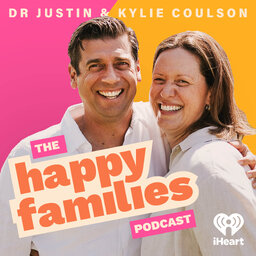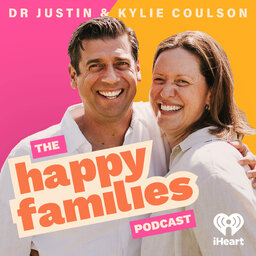#1152 - Why Inside Out 2 is Essential Viewing for Every Parent
Inside Out 2 isn’t just a movie—it’s a parenting masterclass on navigating the beautiful chaos of adolescence! Justin and Kylie Coulson explore the profound parenting insights from Inside Out 2, discussing teen brain development, emotional complexity, and why this film offers valuable understanding for parents.
Key Points:
- Teen brain development and the "construction zone" phase
- The role of anxiety in adolescent decision-making
- How emotions work together (or sometimes don't)
- Why perfect isn't possible or desirable
- The importance of embracing all experiences, both good and bad
Quote of the Episode: "Life is supposed to be joyful. It's just that it can't stay that way all the time." - Justin Coulson
Key Insights:
- Understanding teen brain development through visual metaphors
- How anxiety can both protect and hinder
- The exhaustion of trying to maintain constant positivity
- Why difficult experiences contribute to wholeness
- The complexity of managing multiple emotions
Research Referenced:
- Dr. Lisa Damour's work on teen psychology
- Adolescent brain development research
- The role of the prefrontal cortex in teen decision-making
Action Steps for Parents:
- Watch the film with your teens
- Discuss emotional complexity openly
- Acknowledge the challenge of growth
- Embrace imperfection
- Create space for all emotions
 Dr Justin Coulson's Happy Families
Dr Justin Coulson's Happy Families


